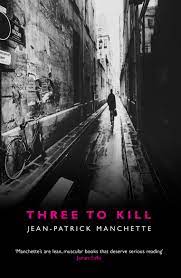I suspect that Cop Killer isn’t typical of the Martin Beck
series. Still, it’s the first I’ve read and there’s enough in the novel to make
me want to visit again.
A woman is murdered on the edge of a small Swedish town and
her body is hidden by the killer.
Martin Beck and Lennart Kollberg of the national murder
squad are called in to investigate what is initially a missing person case.
This takes them for a long stretch in the suburbs where policing is rather
different that in the big cities. Beck is looked after by local cop Allwright
who defies immediate impressions by proving himself to be a knowledgeable and
dedicated officer who knows pretty much everything that there is to know about
his patch. The contrast between city and country is significant and takes Beck
and Kollberg back to days when their working lives were simpler.
There are two main suspects in the case, the victim’s ex-husband
and a local man who has a dark and confused history. After significant digging
and interviews, Beck doesn’t fancy them for this crime. Unfortunately, he’s
battling against press interest and national politics in his bid to find
justice.
The first half of the book is excellent. Beck’s slow
adaptation to a quieter life in a gentle community is rather touching, as is
his new relationship with Allwright. Each of the characters involved brings something
of interest, not least in the way that they help do show different facets of
Beck’s character. There may be the occasional odd phrase or translation to cope
with, but on the whole it flows extremely well.
What didn’t work quite so easily was the transition of the
story into a new overlapping case. Though it’s essential to the solving of the
original murder, it appears from nowhere and feels slightly disjointed. It’s
not that I mind multiple cases in one book; in fact, I think I often prefer it
that way. However, there’s much more opinion thrown in here with extra detail
and reference to facts that slow things down. It brings to light the conflict
between Kollberg’s ways and those of his new boss and that is handled more
heavily than I would have liked. I much preferred the earlier pace and
situation.
In the end, the cases converge. Our murderer is caught. The
personal journeys of the police are rounded off nicely. The friendship between
Allwright and Beck are fused and Allwright invites Beck to come and stay at any
time- I hope Beck took him up on his offer.




